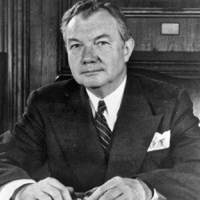Rascals case in brief
In the beginning, in 1989, more than 90 children at the Little Rascals Day Care Center in Edenton, North Carolina, accused a total of 20 adults with 429 instances of sexual abuse over a three-year period. It may have all begun with one parent’s complaint about punishment given her child.
Among the alleged perpetrators: the sheriff and mayor. But prosecutors would charge only Robin Byrum, Darlene Harris, Elizabeth “Betsy” Kelly, Robert “Bob” Kelly, Willard Scott Privott, Shelley Stone and Dawn Wilson – the Edenton 7.
Along with sodomy and beatings, allegations included a baby killed with a handgun, a child being hung upside down from a tree and being set on fire and countless other fantastic incidents involving spaceships, hot air balloons, pirate ships and trained sharks.
By the time prosecutors dropped the last charges in 1997, Little Rascals had become North Carolina’s longest and most costly criminal trial. Prosecutors kept defendants jailed in hopes at least one would turn against their supposed co-conspirators. Remarkably, none did. Another shameful record: Five defendants had to wait longer to face their accusers in court than anyone else in North Carolina history.
Between 1991 and 1997, Ofra Bikel produced three extraordinary episodes on the Little Rascals case for the PBS series “Frontline.” Although “Innocence Lost” did not deter prosecutors, it exposed their tactics and fostered nationwide skepticism and dismay.
With each passing year, the absurdity of the Little Rascals charges has become more obvious. But no admission of error has ever come from prosecutors, police, interviewers or parents. This site is devoted to the issues raised by this case.
On Facebook
Click for earlier Facebook posts archived on this site
Click to go to
Today’s random selection from the Little Rascals Day Care archives….
Click for earlier Facebook posts archived on this site
Click to go to
Today’s random selection from the Little Rascals Day Care archives….
Did jurors really believe ‘poop in the spaghetti’?
Jan. 25, 2015
Q: You said that Mr. Bob made spaghetti at the day care…. Now, when did Mr. Bob say that there was poop in the spaghetti?
A: After we, um, ate it.
Q: All right. Did – did you ever have to eat poop at the day care?
A: No.
Q: Okay. Did anybody try and make you eat poop at the day care?
A: Yes.
Q: Who?
A: Mr. Bob.
Q: Tell me about it.
A: I don’t remember it.
Q: You don’t remember it?
A: No.
Q: Well, how do you know Mr. Bob tried to do it?
A: What?
Q: Did somebody tell you about it?
A: No.
Q: Okay. Well, then tell me how Mr. Bob tried to make you eat poop.
A: Um, he told me, um, to eat it.
Q: Okay. Where was it?
A: I forgot.
Q: You forgot. Well, was it in Ms. Shelly’s room?
A: No.
Q: Was it in the kitchen?
A: Yes.
Q: Okay. Well, did he make other kids eat poop while you were there?
A: Yes.
Q: Okay. Well, um, what happened when they ate it?
A: I don’t know.
– From defense attorney Jeffrey Miller’s cross-examination of a child witness in the trial of Bob Kelly
This exchange represents only a tiny fraction of the 7-year-old girl’s testimony, which stretched over two days and included similarly incoherent references to Kelly and other defendants having raped her, urinated in her mouth, threatened to kill her parents, sodomized her with pencils and sewing needles, taken her on boat and truck rides, forced her to witness the killing and burial of babies and small animals…..
How funny and trivial such childish imaginings would seem, if only the jury’s gullibility hadn’t sent Kelly to prison for six years. “The children were convincing,” insisted rogue juror Dennis T. Ray.
Exoneration depends on catching eye of media
 Oct. 3, 2012
Oct. 3, 2012
“You can have all the evidence in the world, and that’s still only 50 percent of the fight. The other 50 percent is media.
“You have to get the media to pay attention. If not, they’ll sweep it under the rug and keep going.”
– Damien Echols of the West Memphis Three, analyzing (in the New York Times) his continuing struggle for exoneration.
If you’re in the media – reporter, editor, blogger, author, moviemaker, aerial advertising entrepreneur – and ready to pay attention to the Edenton Seven, let me hear from you.
When adversarial system doesn’t lead to justice

ncaj.com
Christine Mumma
May 26, 2016
“I would like to see more cooperation between prosecutors and defense attorneys in their efforts to achieve justice, particularly when there is a credible post-conviction claim of innocence. The overloaded, underfunded, and often inefficient adversarial system doesn’t have to be the approach when common sense and a shared interest in justice can more quickly address injustices for the convicted and victims of crime.
“Prosecutorial conviction integrity units around the country have made that clear, but the North Carolina Conference of District Attorneys seems to be encouraging less cooperation, not more.”
– Christine Mumma, quoted by the North Carolina Advocates for Justice
Mumma, of course, has famously endured the wrath of prosecutors whose autocracy she challenged.
You can like the North Carolina Conference of District Attorneys on Facebook.
Or not.
![]()
‘Tremendous … discretion’ has changed little since 1940

wikipedia.com
Robert H. Jackson
July 19, 2016
“The prosecutor has more control over life, liberty, and reputation than any other person in America. His discretion is tremendous. He can have citizens investigated and, if he is that kind of person, he can have this done to the tune of public statements and veiled or unveiled intimations.
“Or the prosecutor may choose a more subtle course and simply have a citizen’s friends interviewed. The prosecutor can order arrests, present cases to the grand jury in secret session, and on the basis of his one-sided presentation of the facts, can cause the citizen to be indicted and held for trial. He may dismiss the case before trial, in which case the defense never has a chance to be heard.
“Or he may go on with a public trial. If he obtains a conviction, the prosecutor can still make recommendations as to sentence, as to whether the prisoner should get probation or a suspended sentence, and after he is put away, as to whether he is a fit subject for parole.
“While the prosecutor at his best is one of the most beneficent forces in our society, when he acts from malice or other base motives, he is one of the worst….”
– From an address by Attorney General Robert H. Jackson to the Conference of United States Attorneys, Washington, D.C., April 1, 1940
Although Jackson’s cautionary words were directed toward federal prosecutors, they could hardly be more applicable to the State of North Carolina’s prosecution of the Edenton Seven. H.P. Williams Jr., Bill Hart and Nancy Lamb surely missed no chance to put forth “veiled or unveiled intimations,” to make a “one-sided presentation” or to otherwise act “from malice or other base motives.”
![]()











0 CommentsComment on Facebook